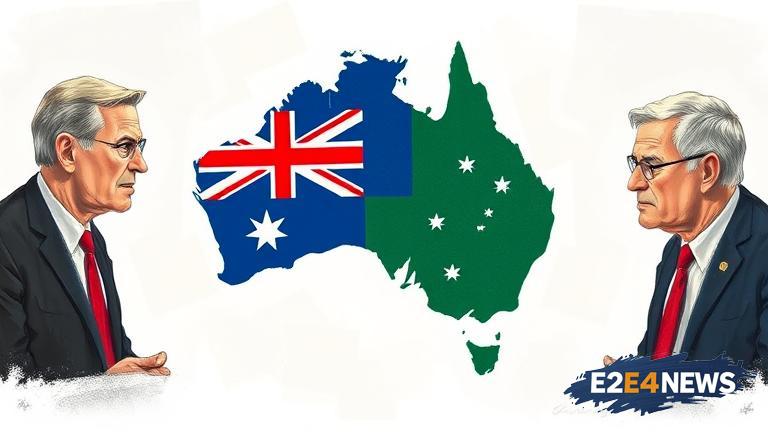The Australian Coalition government is facing internal divisions as a growing number of MPs push for a debate on net zero emissions. The issue has sparked a heated discussion within the party, with some members arguing that adopting a net zero target would be a crucial step in reducing the country’s carbon footprint and meeting its international climate commitments. Others, however, are concerned that such a move would have significant economic implications, particularly for industries that rely heavily on fossil fuels. The debate has highlighted the deepening divisions within the Coalition, with some MPs openly criticizing the party’s climate change policies. The push for a net zero debate has been led by a group of moderate MPs, who argue that the party needs to take a more proactive approach to addressing climate change. They point to the fact that many other countries, including the UK and the EU, have already adopted net zero targets, and argue that Australia needs to follow suit in order to remain competitive in the global economy. However, the move has been met with resistance from some of the party’s more conservative members, who are concerned about the potential economic impacts of such a policy. They argue that adopting a net zero target would lead to significant job losses and economic disruption, particularly in industries such as coal and gas. The debate has also sparked a wider discussion about the Coalition’s climate change policies, with some critics arguing that the party’s current approach is inadequate and ineffective. The Australian government has committed to reducing its greenhouse gas emissions by 26-28% below 2005 levels by 2030, but many argue that this target is not ambitious enough. The push for a net zero debate has also highlighted the growing divide between the Coalition’s urban and rural MPs, with some rural members expressing concerns about the potential impacts of such a policy on their constituents. Despite the internal divisions, the Coalition government has maintained that it is committed to addressing climate change and reducing its carbon footprint. However, the debate over net zero emissions has raised questions about the party’s ability to develop a coherent and effective climate change policy. The issue is likely to continue to be a source of tension within the Coalition, particularly as the party prepares for the next federal election. The Australian public is also watching the debate closely, with many calling for greater action on climate change. A recent poll found that a majority of Australians support the adoption of a net zero target, and many are frustrated with the lack of progress on the issue. The debate has also sparked a wider discussion about the role of climate change in Australian politics, with some arguing that it is becoming an increasingly important issue for voters. As the Coalition continues to grapple with its internal divisions, it remains to be seen whether the party will be able to develop a coherent and effective climate change policy. The issue is likely to continue to be a major point of contention within the party, and may ultimately have significant implications for the Coalition’s electoral prospects. The Australian government’s approach to climate change is also being closely watched by the international community, with many countries calling for greater action on the issue. The push for a net zero debate has highlighted the need for Australia to take a more proactive approach to addressing climate change, and to develop a coherent and effective policy for reducing its carbon footprint. The debate is likely to continue in the coming weeks and months, and may ultimately have significant implications for the future of the Coalition government.
